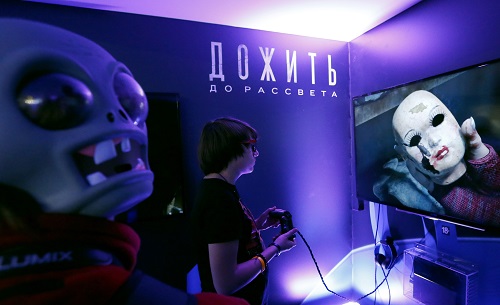
An addiction to video games has been linked to anxiety and depression in children. Additionally, it has also been blamed for making children aggressive and hostile. However, turns out that children can benefit out of spending some time playing action video games.
Researchers from the University of Rochester in US found that playing action video games enhanced learning in children and made them smarter.
"Prior research by our group and others has shown that action gamers excel at many tasks. In this new study, we show they excel because they are better learners," Daphne Bavelier, a research professor in brain and cognitive sciences at the University of Rochester, said in a news release. "And they become better learners," she said, "by playing the fast-paced action games."
Performance of the brain depends up on its ability to predict the upcoming events. Researchers found that playing action video games helped improve the brain's prediction skills.
"In order to sharpen its prediction skills, our brains constantly build models, or 'templates,' of the world," she explained. "The better the template, the better the performance. And now we know playing action video game actually fosters better templates."
Researchers determined benefits of playing action video games through a series of tests.
In the first test, action video gamers scored better than non-action video gamers in a pattern discrimination task meant to analyse visual performance.
In the second experiment, two groups of people without any previous exposure to video games were asked to play either an action video game or non-action video game for a period of nine weeks. Participants completed pattern discrimination task before and after the experiment.
Results showed that exposure to video games for 50 hours helped improve templates in people who played action video games.
Researchers also noticed that action video gamers performed better in perceptual learning task than non-gamers. This is because playing action video games helped fasten the template- building capacity of the brain and thus helped it perform better.
Interestingly, the effects of action video game on learning also lasted long.
"When they began the perceptual learning task, action video gamers were indistinguishable from non-action gamers; they didn't come to the task with a better template," Bavelier, explained. "Instead, they developed better templates for the task, much, much faster showing an accelerated learning curve."
The study has been reported in Proceedings of the National Academy of Sciences.
Though most of the parents do not like their children glued to the video games, previous research has revealed that video games can teach ethical and moral values; improve physical activity and improve reading skills of dyslexic children.











